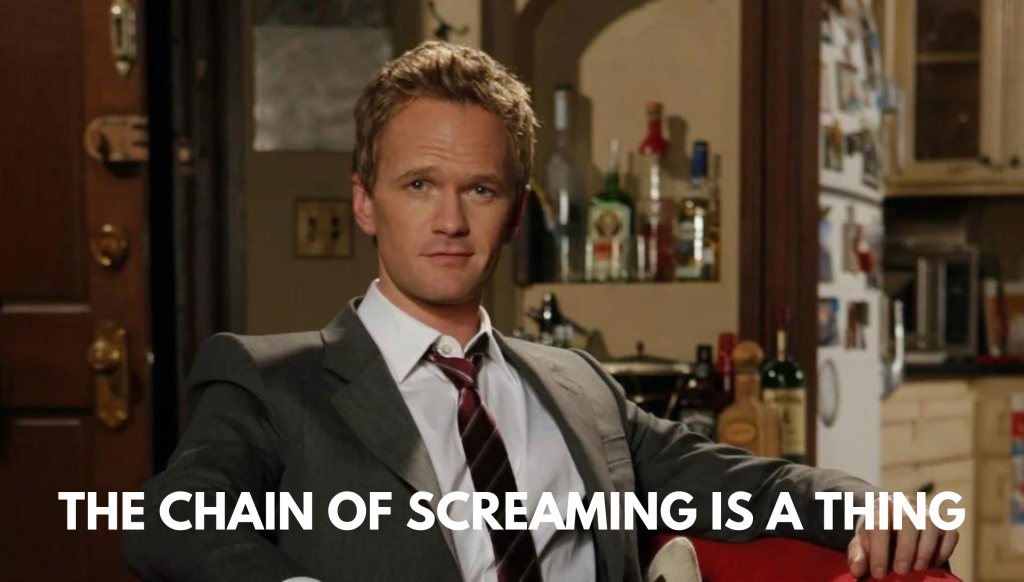Piggybacking on the previous article, where I promote this idea of constantly following our own wish and only doing what we enjoy doing, today, I would like to talk about the receiving side of this story, about the need for us to be flexible and understanding in order to make this dream attainable in practice.
Because yes, I know that just declaring a selfish & self-focused society where everyone is obsessed with their own ways might not sound immediately convincing. Like, you could just straight away point out the most obvious flaw of this reasoning, highlighting how such a way of existing would inevitably lead to conflicts and clashes as one’s liberty is someone else’s constraint.
However, life doesn’t have to be a zero-sum game, and this makes me optimistic. The trick is actually rather easy – We, as customers, as friends, as strangers, and as fellow human beings, have to take understanding to the next level, and show how literally anything is possible if we play along on the receiving end.
Because right now, the world works the way it works because there’s demand for it, because we push each other into embracing the techniques our society, often to the detriment of a great bulk of its members, works with.
There’s demand for fast delivery. There’s demand for low prices. There’s demand for bankers & traders falling asleep in their offices, and there’s demand for ChatGPT writing our academic essays.
(Disclaimer: It’s me writing my articles, not ChatGPT)
And as a result of all these (and so many other) convenience-driven wishes, we have a world of underpaid workers and toxic workaholics, both formations causing more pain than merit. And while as a consequence of this setup, the over-hyped customer is seemingly content and happy with shelves stacked with cheap goods and services, the same person (after all, the customers themselves have to somehow earn a living to spend on consuming, and that’s achieved by working) is often exposed to a working & living environment of rigidity, impatience, and rushing.
However, while gravity might indeed be inescapable, the rest is totally our own doing. We are the ones behind “the rules of the game”, we write the playbook that determines what roles there are and what they entail. Shortcuts are shorter because we are obsessed with lengthy processes, preferential treatment is preferential because we could not provide the rest with the same.
I see understanding as key to solving these impossibilities because often it is indeed our own inability to see how we could be both characters in the story (the worker and the customer) that renders our vision limited.
If I’m frugal and impatient, no wonder that Amazon will feel incentivized to provide lowest prices with fastest delivery. After all, in this environment of spiraling customer needs, businesses can only succeed if they swallow their free spirit and streamline their practices. However, this will directly translate into workers seeing their wages compressed while their working environment itself being all demanding and stressed. And me, being the enlightened progressive understanding their quest, will go out and protest, as if it hadn’t been me in the first place that clicked on the cheap shipment.
In another scenario, where I understand how literally all dots are connected, I practice flexibility and stifle my potential irritation sparked by a longer waitlist or greater distance. Instead of rewarding speed and cheapness, I value companies and their products that benefit all those impacted by them. I don’t flock to the next trend merely because it brings convenience to the user experience, but instead I take a step back to understand first how workers as well are affected.
While initially, this might sound like a too-mainstream-a-trick to truly work in practice, if you think about it, how often does it happen that we say no to somebody’s seemingly unattainable wish merely because it doesn’t fit today’s narrative, a narrative we have created in the first place. This lack of imagination and understanding constrains our free spirit from our early academic days all the way to training new interns at big companies and raising our own kids.
There’s already knowledge out there on almost everything, from what it takes to succeed in a corporate setting to what marketing tricks people find appealing. But what is often forgotten in all the lives we lead is how it was us humans giving meaning to everything in the first days in reaction to inputs other humans gave.
If I go out there asking for a discount on something or an extension to a project which I can only finish with a cute delay, rejection is not my fate because of capricious weather conditions that are not favoring me and which we cannot change, but because someone is not understanding enough to see any other way than what was originally conceived. This constrains me, but it negatively affects my rejector as well who is putting an end to my dreams because the day might come when the same litany of rejecting excuses returns to hunt him in his quest of seeking understanding.
Many More Situations Could Be Explored, But What We Are Looking For Is One Simple Foundation
What I’m circling around throughout my whole rambling is basically the simple notion behind the circle of things, the idea which Barney Stinson has so eloquently presented when pinpointing how your boss screaming at you is the result of his kid screaming at him. One may call Karma a bitch, but in truth, it’s just our own obsession with vengeance and reciprocity. We give what we have been dealt with. And if no one ever takes a step back from today’s circle of things, we will keep doing the same thing, with all the flaws and correctable mistakes.

One may decide to be all chill and pursue things differently, constantly asking for understanding and flexibility in a world of set methods and paved walkways. However, the brazenness of one dreamer will not do the trick because it might just irritate and sting the rest of society still stuck in yesterday’s rigid circle of things. However, with the help of those on the receiving end of the story – you and me as friends, customers, working colleagues opening up our imagination for new ways and opportunities – such a transition could easily be put into practice as it would have both parties of an exchange agreeing to the invitation to do things differently.
It is understanding taken to the next level as it requires a society looking out for more than fast deliveries and low prices, a moment of empathetic attentiveness we don’t just practice momentarily, in rare instances of goodwill, but something that becomes part of our day-to-day activities as we move forward on the dreamers’ way.
Idealistic it is because it assumes that we can all go as far as to see ourselves in the same shoes with the rest of society. However, all it truly takes is us practicing even more selfishness, to the point that we don’t compromise on what we would like to be doing, with belief in a world that is going after the same thing, hence achieving mutual understanding.
In this combination of selfishness and being all understanding, one’s solidaristic moment of taking into account all stakeholders affected by a currently greedy market exchange is another one’s pass to do whatever s/he deems fit. It’s a swap towards long-term thinking where we understand when to practice solidarity and when to be adamant on doing our own thing. It’s selfish, but selfish in a collectively beneficial way as we replace getting stuck in trivialities with pulling merely our own strings.


